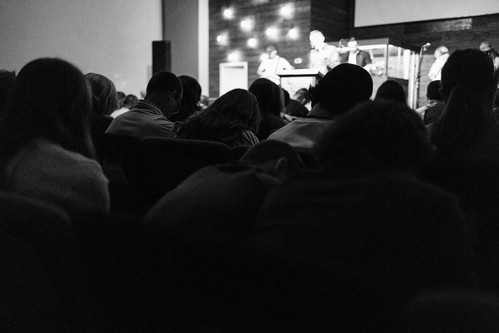September 25th, 2023
by John Rogers
by John Rogers
Only God Saves
by Jonathan Molengraf

We used to sing a song titled “Glorious Day” at a Summer camp that I worked at. It was the perfect high energy song that spoke about the beauty of God saving us from death and giving us new life in Christ. My camp director used the song's chorus, “And I ran out of that grave” as an illustration for us. He explained that a more theologically correct statement would be: “And God pulled me out of that grave”. A Biblical understanding of salvation highlights that we have no doing whatsoever in our salvation and it is only based on God’s merciful will, rather than our own.
God’s Rich Mercy
Paul argues this very point in Romans 9:14-18.If God were not merciful, then nobody would be saved. Thankfully, God is rich in mercy and many people are saved. Yet, salvation only belongs to the Lord. There is no special prayer we can pray to get us saved, nor can we earn God’s favor with our good deeds. In fact, to God, all our righteous deeds are like filthy rags (Isaiah 64:6). So even if we tried our best we would not be able to move an inch. But we do not need to, because the good news is that Jesus did the work for us through His life, death, and resurrection.
We might claim that salvation is not fair. Paul uses the imagery of a potter and his clay to address this issue, “20 But who are you, O man, to answer back to God? Will what is molded say to its molder, “Why have you made me like this?” 21 Has the potter no right over the clay, to make out of the same lump one vessel for honorable use and another for dishonorable use?”(Romans 9:20-21). We as God’s creation cannot tell God how to be used, just as the clay cannot tell the potter how it is to be shaped. God is the creator of all and He imposes His own will on us.
The Bondage of Our Will
In The Bondage of the Will (available in the C3 Library), Martin Luther is counter arguing Erasmus, who claims that human will determines our salvation. Luther claims that Erasmus’ theology is a heresy known as pelagianism, which maintains that humans can do good on their own will and achieve a sinless life. While most of us do not believe that; we are susceptible to falling into a “semi-pelagian” belief that would suggest we have some doing in our salvation. However, we have nothing to do in our salvation, which is good news as Luther says in The Bondage of the Will:
“I should not want "free-will" to be given me, nor anything to be left in my own hands to enable me to endeavour after salvation; not merely because in face of so many dangers, and adversities and assaults of devils, I could not stand my ground; but because even were there no dangers. I should still be forced to labour with no guarantee of success.”
If we had anything to do with our salvation we would fail every time. Fortunately, God has everything to do with our salvation, which is why we can have so much security in it. We should be reminded daily of how we were once buried way deep in the ground of sin and death, but God by His merciful will, pulled us out of that grave into His marvelous light, and our hope lies in Him alone.
God’s Rich Mercy
Paul argues this very point in Romans 9:14-18.If God were not merciful, then nobody would be saved. Thankfully, God is rich in mercy and many people are saved. Yet, salvation only belongs to the Lord. There is no special prayer we can pray to get us saved, nor can we earn God’s favor with our good deeds. In fact, to God, all our righteous deeds are like filthy rags (Isaiah 64:6). So even if we tried our best we would not be able to move an inch. But we do not need to, because the good news is that Jesus did the work for us through His life, death, and resurrection.
We might claim that salvation is not fair. Paul uses the imagery of a potter and his clay to address this issue, “20 But who are you, O man, to answer back to God? Will what is molded say to its molder, “Why have you made me like this?” 21 Has the potter no right over the clay, to make out of the same lump one vessel for honorable use and another for dishonorable use?”(Romans 9:20-21). We as God’s creation cannot tell God how to be used, just as the clay cannot tell the potter how it is to be shaped. God is the creator of all and He imposes His own will on us.
The Bondage of Our Will
In The Bondage of the Will (available in the C3 Library), Martin Luther is counter arguing Erasmus, who claims that human will determines our salvation. Luther claims that Erasmus’ theology is a heresy known as pelagianism, which maintains that humans can do good on their own will and achieve a sinless life. While most of us do not believe that; we are susceptible to falling into a “semi-pelagian” belief that would suggest we have some doing in our salvation. However, we have nothing to do in our salvation, which is good news as Luther says in The Bondage of the Will:
“I should not want "free-will" to be given me, nor anything to be left in my own hands to enable me to endeavour after salvation; not merely because in face of so many dangers, and adversities and assaults of devils, I could not stand my ground; but because even were there no dangers. I should still be forced to labour with no guarantee of success.”
If we had anything to do with our salvation we would fail every time. Fortunately, God has everything to do with our salvation, which is why we can have so much security in it. We should be reminded daily of how we were once buried way deep in the ground of sin and death, but God by His merciful will, pulled us out of that grave into His marvelous light, and our hope lies in Him alone.
More From the Blog:
Love Your Neighbor As Yourself
February 23rd, 2026
Finding the Right Foundation for Your Life
February 16th, 2026
Sojourners in the Flesh
February 9th, 2026
Suffering is Not Pointless
February 2nd, 2026
Romans and Ratatouille
January 26th, 2026
A Taming of the Shrewd
January 19th, 2026
Commit Fully
January 12th, 2026
Keeping our Brothers
January 5th, 2026
Read the Bible in 2026
December 29th, 2025
A Challenge for Parents this Christmas
December 22nd, 2025
No One Can Snatch Me Out of My Father's Hand
December 15th, 2025
Light of the World, You Stepped Down into Darkness
December 8th, 2025
A Lesson from Two Rich Men
December 1st, 2025
Hold Up. Don't Fold Up.
November 24th, 2025
Surviving Trials is Not the Goal
November 17th, 2025
Recent
Archive
2026
2025
February
March
April
September
October
November
2024
March
April
September
October
2023
April
May
July
August
September



No Comments